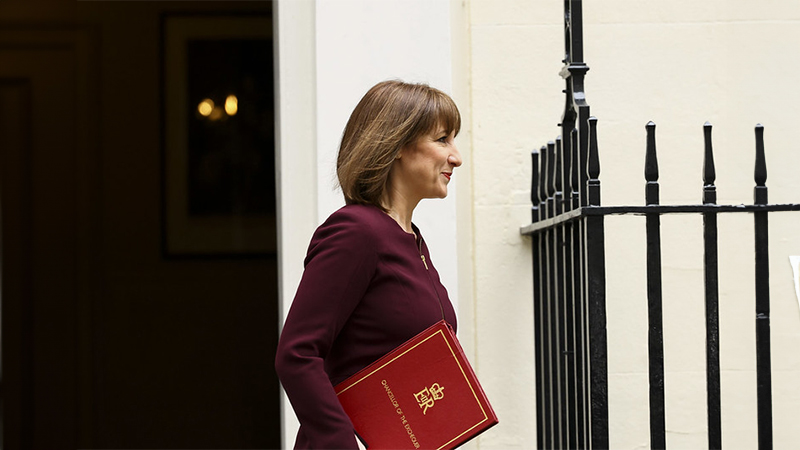Chancellor Rachel Reeves (pictured) has announced an extra £2.2bn in defence spending from April as part of the Spring Statement as she pledged to “boost Britain’s defence industry and to make the UK a defence industrial superpower”.
In February, the government committed to increasing defence spending to 2.5% of GDP from April 2027.
“We have to move quickly in a changing world,” the chancellor told the House of Commons, “and that starts with investment.”
See also: ‘Road ahead is anything but smooth’ as UK inflation dips
“I can today confirm that I will provide an additional £2.2bn for the Ministry of Defence next year – a further down payment on our plans to deliver 2.5% of GDP.
“This increase in investment is not just about increasing our national security but increasing our economic security, too.”
As part of the plans, a minimum of 10% of the Ministry of Defence’s equipment budget will be spent on new novel technologies, such as drones and AI-enabled technology.
Reeves said that this would drive forward advanced manufacturing production in places like Glasgow, Derby and Newport and create new business opportunities for UK tech firms and startups.
“We will establish a protected budget of £400m within the Ministry of Defence, a budget that will rise over time for UK defence innovation with a clear mandate to bring innovative technology to the front line at speed.
“And we will reform our broken defence procurement system, making it quicker, more agile and more streamlined.”
Reaction
Tom Bailey, head of research at HANetf, said the announcement marks a “welcome step forward” in building the UK’s defence capabilities and reflects growing recognition of the threats facing the UK and Europe.
“The decision to earmark 10% of the Ministry of Defence’s equipment budget for new technologies such as drones and AI is particularly significant. Security is defined by technological advantage – investment in these areas is essential.
“That said, we must also view this in historical context. At the end of the Cold War, the UK was spending over 4% of GDP on defence. While returning to that level of spending isn’t immediately feasible due to fiscal pressures, the world is now significantly more dangerous.
“Recent events have shown that Europe can no longer rely as heavily on US support, making it essential for European nations to take greater responsibility for their own security. This increase in UK military spending should be seen alongside the big boost in spending from Germany and the EU’s €800bn defence spending plan.”
Susannah Streeter, head of money and markets at Hargreaves Lansdown, added: “The extra defence spending will be welcomed by defence contractors but there were not any significant moves in the share prices of big names, given that much of the budget will be reserved for seed investments, startups and accommodation upgrades. Nevertheless, optimism surrounding the sector remains.”










